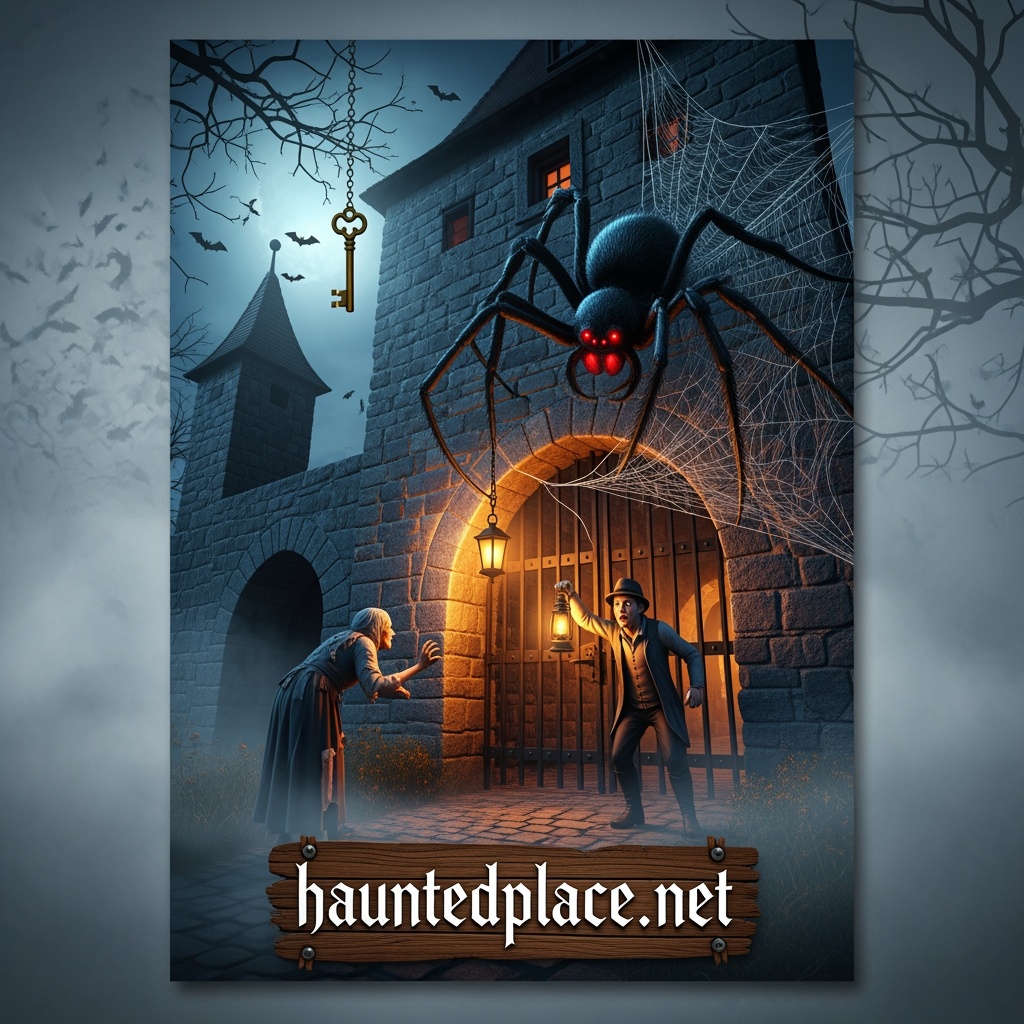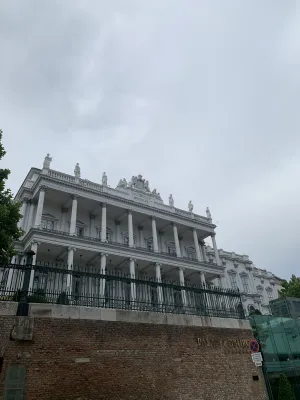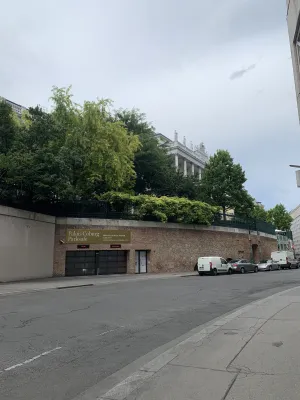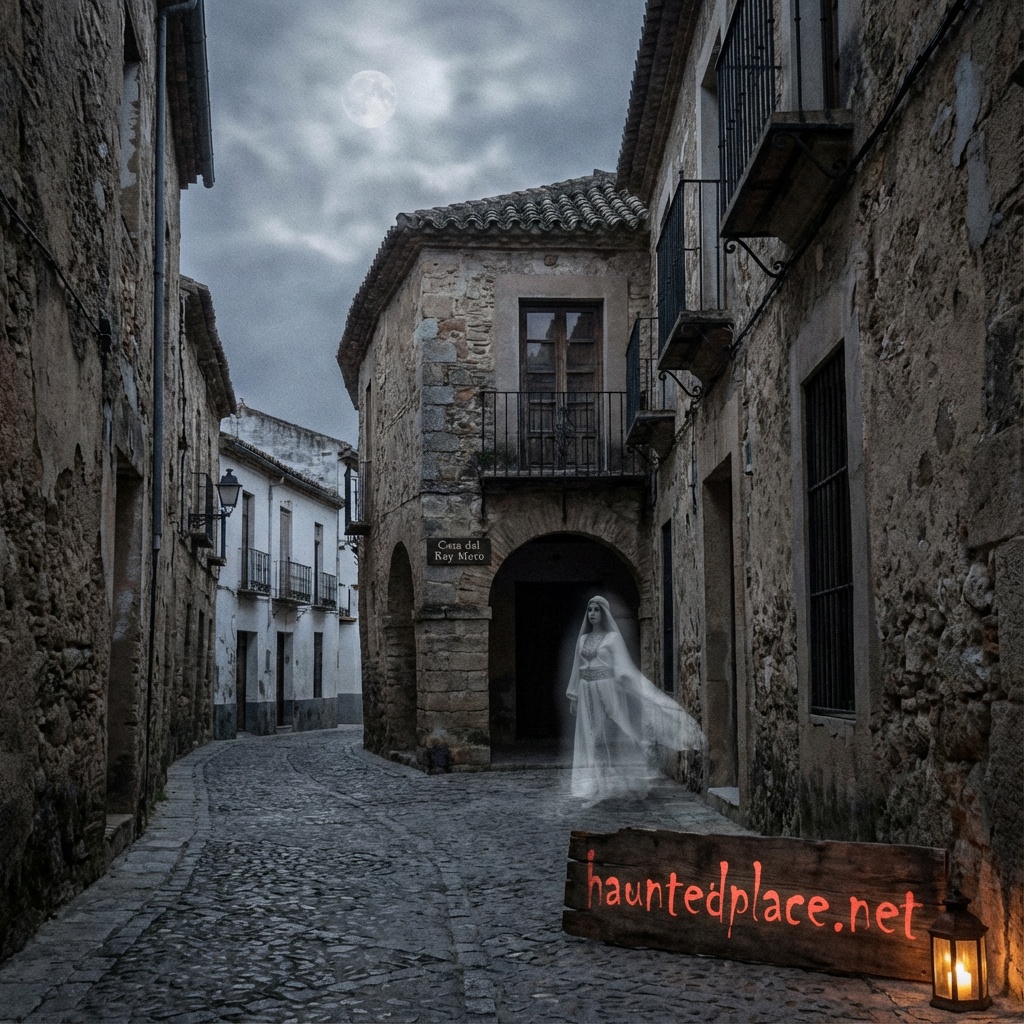
In Vienna’s 1st district, Innere Stadt, on Coburgbastei street, stands the late-classical Palais Coburg, completed in 1845, during the renovation of which fragments of the Vienna city wall were uncovered. The present-day Innere Stadt was once surrounded by a city wall with numerous city gates, which provided security and were locked at night to prevent strangers from entering the city. One of these former city gates was the Stubentor, which stood not far from the present Palais Coburg. This former gate is the subject of a legend about a gatekeeper and a black spider. In times long past, an old woman dressed in poor clothes knocked on the already closed gate late at night and asked to be let in. However, the gatekeeper had no intention of letting the woman in, as he did not expect her to give him a tip for opening the gate. The woman continued to knock on the gate, however. The gatekeeper shouted at her that the key to the gate was hanging too high and that he would not have a ladder to fetch the key until the next morning. The old woman had no choice but to spend the night outdoors. She wished aloud that the next time someone knocked on the gate and he wanted to open it for a tip, the key would actually be hanging so high that he couldn’t reach it. The next night, a wealthy gentleman known throughout the city knocked on the gate while sitting on his horse. The gatekeeper immediately rushed to get the key to unlock the gate, because the distinguished gentleman always gave generous tips. But when he reached for his key, he saw in the light of his lantern that a large black spider had spun a web around the key hanging high on the wall and was pulling it higher and higher with its threads. He fetched a chair and stood on it, but he still couldn’t reach the key. Meanwhile, the rich man knocked impatiently on the gate, but the gatekeeper couldn’t grab the key. Even a table, which he placed against the wall to climb on and reach the key, didn’t help. To make matters worse, during one of his attempts, the table tipped over and the gatekeeper injured his leg. The distinguished gentleman became increasingly impatient and asked when he would finally be allowed to enter. The gatekeeper shouted angrily that he couldn’t reach the key because a black spider was pulling it higher and higher. The rich man couldn’t believe his ears and rode off in a huff. He thought the gatekeeper was mocking him with his answer. He rode to another city gate, which he was able to pass through in exchange for a tip. The next day, the wealthy man went to the city council and complained about the gatekeeper, whom he believed to be drunk, as he could not otherwise explain his cheeky response. As a result, the gatekeeper had to go to the town hall and describe the incident. He insisted that a black spider had made it impossible for him to reach the key. Of course, no one believed him. Everyone thought it was a figment of his imagination caused by alcohol intoxication. From then on, the gatekeeper was no longer allowed to guard the city gate and had to work as a knacker. This medieval profession involved processing the dead bodies of animals that had died. It was an unpleasant job that was associated with a terrible stench. So the former gatekeeper had received his just punishment after all. For those who dig a pit for others will fall into it themselves.









